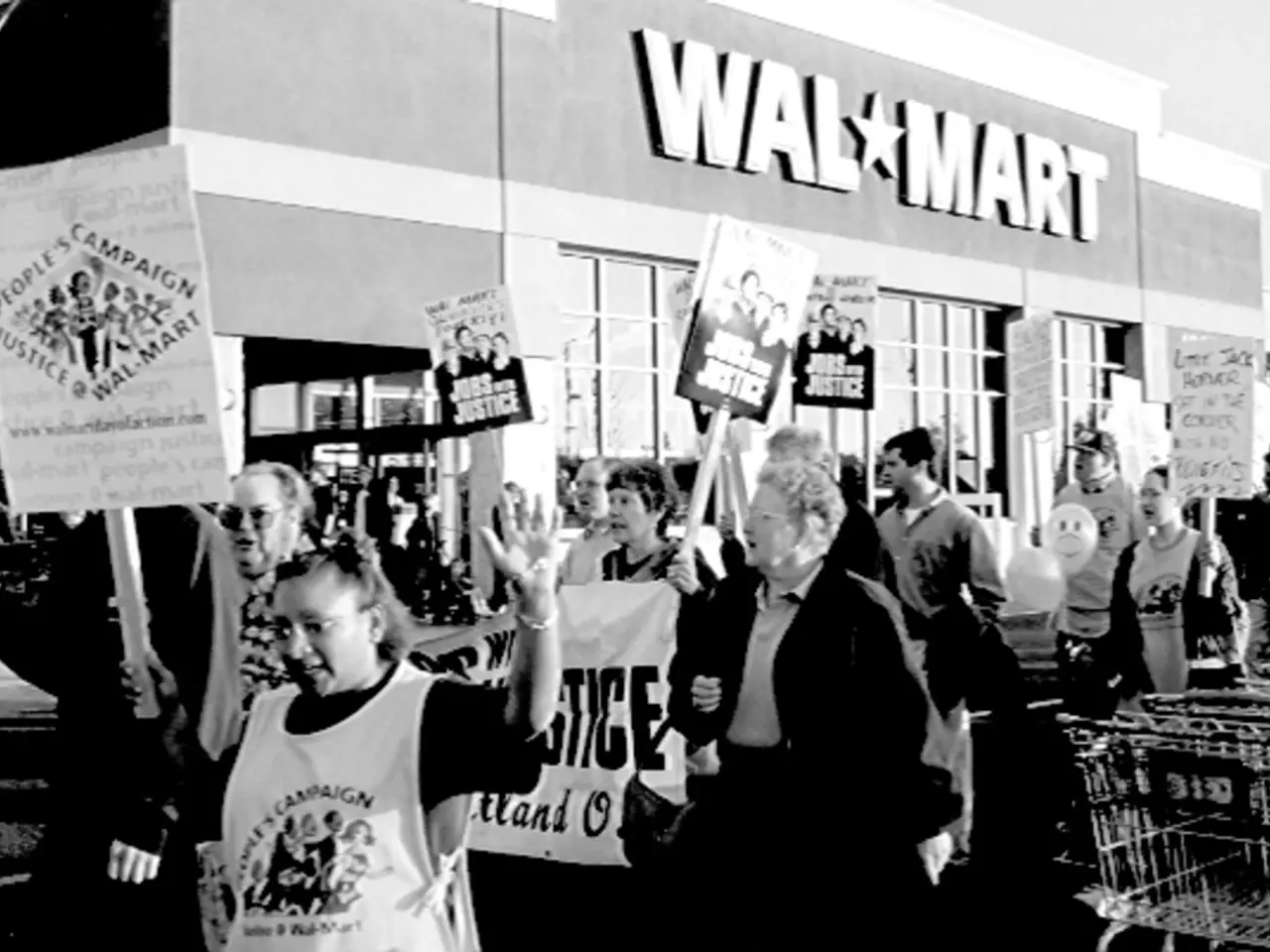UCLA implements fresh campus protest regulations, adopting some similarities to Trump's requests
UCLA has unveiled new campus protest rules, a move that aligns with some demands from the Trump administration while expanding free speech zones. The changes come amidst ongoing legal battles and allegations of insufficient handling of protests against antisemitic attitudes.
The lawsuit against UCLA, filed by Jewish organizations, accuses the university of failing to adequately address antisemitism on campus. However, the new rules contain no mention of international students or a ban on "anti-Western, anti-American" ideas.
The enforcement of the new protest rules will be carried out according to all rules, with no consideration of political views, as stated by Lurie, the Vice Chancellor for Student Affairs at UCLA. Violence, threats of violence, or property damage are considered disruptive under the new rules, and people who engage in disruptions in public protest areas will be asked to move to a different location. If they don't, consequences can include arrest and campus discipline proceedings.
The rules also make clear that campus disruptions are not allowed, and define them to include undue interference with pedestrian or traffic access and undue interference with others' access to campus operations or activities. Sound must be 85 decibels or below during marches, which are not allowed to disrupt classes and programs or block walkways. The measure is roughly equivalent to the sound of city traffic or a noisy restaurant. Sound was not previously considered during such marches.
UCLA police do not cooperate in nor are they ever involved in immigration enforcement, a reassurance for the university's diverse student body. However, the government has demanded that UCLA screen foreign student applicants to ensure those "likely to engage in anti-Western, anti-American, or antisemitic disruptions or harassment" are not admitted. No explicit mention of such restrictions is in the new rules.
The rules include a ban on unauthorized demonstrations at Royce Quad, a site of a pro-Palestinian encampment that the Trump administration has cited as the central reason for pulling $584 million in UCLA research funding. The Trump administration has also demanded a prohibition on overnight demonstrations in any university locations, but UCLA's rules do not fully adhere to this demand.
University of California employees have sued President Trump over a $1.2-billion penalty against UCLA and federal demands for sweeping campus changes, arguing that the actions are unconstitutional and will harm the entire UC system. A federal judge, Rita F. Lin, is "inclined" to order the Trump administration to restore $500 million in National Institutes of Health grants to UCLA that the government froze in late July.
UCLA Chancellor Julio Frenk stated that the policies are aimed at preserving free speech, thought, and expression while maintaining a safe and welcoming environment for all community members. The policies also allow pre-approved overnight events, such as an all-night reading last October of famed Palestinian American author Edward Said's memoir.
In response to a recent shooting on a Utah campus, UCLA is evaluating its security, but has not initiated any new measures. Meanwhile, University of California police departments have been approved to buy new rifle rounds, drones, and thousands of pepper-balls.
University of California student body President Diego Bollo expressed concern that enforcement of new protest rules may come at the discretion of university officials and be influenced by external factors, including the federal government.
The new rules have sparked debate and concern among students and faculty, with some fearing that the rules may infringe on free speech rights. However, the university maintains that the rules are necessary to ensure a safe and orderly campus environment.
As the situation continues to develop, UCLA and the Trump administration remain locked in a legal battle over research funding and allegations of insufficient handling of protests against antisemitic attitudes. The new protest rules are just one piece of a larger, ongoing controversy.
Read also:
- Trump-backed TikTok deal receives tacit approval from Xi, as long as compromises are made in other areas.
- Congressional ambitions announced by previous Alexandria councilman, Seifeldein
- Recommendations propose stricter controls on MMRV immunizations, as suggested by Kennedy's advisory group
- Trump's impact on Americans to be explored in new podcas to be hosted by Alex Wagner, in partnership with Crooked Media




